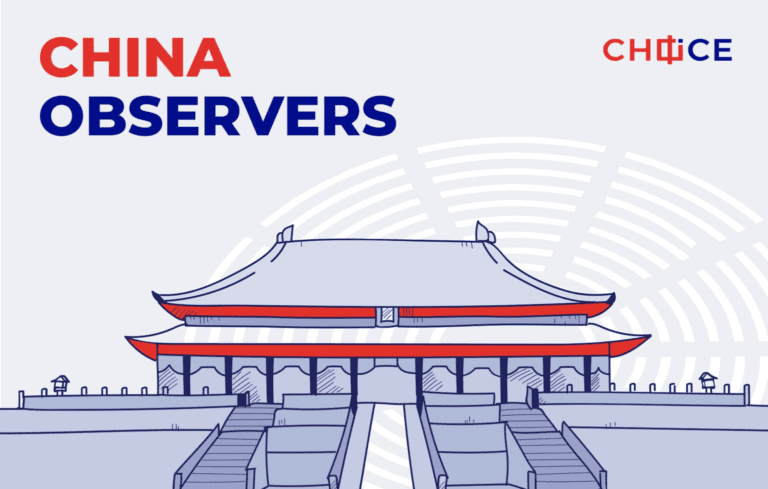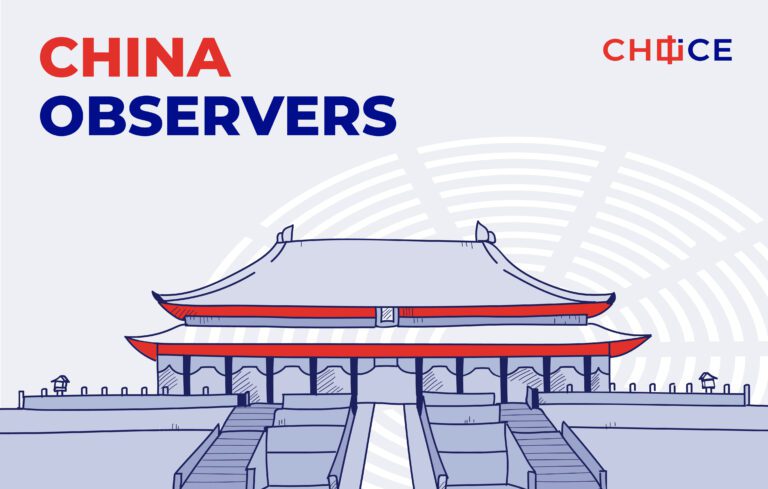Voice for CHOICE Regional Roundtable: Assessing 17+1 Fallout, Vaccine Diplomacy, and More


The year may yet be young, especially in terms of the lunar calendar, but that has not meant any shortage of major events impacting Sino-European relations.
After the CAI’s signing at the close of 2020 seemingly encouraged major Western European partners to take a more friendly tone toward China, Beijing understandably sought to quickly court Central and Eastern European nations through the relatively long-standing 17+1 cooperation.
In what could have been a major opportunity to promote a positive image of cooperation with China, President Xi Jinping himself came to chair the virtual iteration of the 17+1 summit in February. This was a replacement for the originally planned gathering of the format in Beijing last spring, ultimately cancelled due to the pandemic. With Xi’s remarks covering a range of major issues including vaccine diplomacy and investment along the Belt and Road Initiative (BRI) designed to revive the CEE countries interest in the cooperation format, CHOICE assembled an expert panel from the Baltics to the Balkans to examine the major issues covered.
Stepping back from 17+1
The 17+1 summit of 2021 was off to an inauspicious start, in fact, even before it began. The cooperation format initiated by China in 2012 is seemingly running out of steam.
The leadup to the meeting was filled with questions over official attendance, emanating largely from the Baltics, but also joined by indications that leaders of other nations may abstain as well. In the end, six countries (Latvia, Lithuania, Estonia, Romania, Slovenia and Bulgaria) decided to be represented only by lower-level officials.
The situation of the Baltics as stalwart challengers to China has been an interesting development, but not one that might have been unexpected due a confluence of political, security, and historical realities that shape the orientation of the bloc towards Beijing’s overtures. Further, the economic promises that had maintained a modicum of interest in cooperation by Baltic states have largely remained unfulfilled, souring the regional sentiment.
Konstantinas Andrijauskas, Associate Professor of Asian Studies at Vilnius University in Lithuania gave CHOICE his condensed thoughts on how the Baltic nations views of the format have progressed from 2012 to the present.
However, as was noted, the Baltics were not alone in bucking the format’s high-level attendance. Plamen Tonchev, Head of the Asia Unit at the Athens- based Institute of International Economic Relations (IIER) and a European China Policy Fellow at MERICS, noted that the rationale in Romania is not far off from the calculus described by Andrijauskas in the Baltics.
He noted that the eagerness of the Romanian government to align itself with US interests, including on issues like 5G wherein it has banned Huawei from participating in the 5G rollout, and nuclear energy wherein the government cancelled a deal for the construction of the Cernavodă nuclear plant by the Chinese state-owned enterprise (SOE) China General Nuclear Power Group, souring the relations between Bucharest and Beijing.
“Romania is really keen on remaining on good terms with the United States not least because of security concerns,” he said. “Next to Romania is the Romanian speaking Moldova, but also the Russian 14th army camping in Transnistria.”
He noted that these security concerns supersede the promise of cooperation with China, especially as little actual investment flows through to the nation. Tonchev also contrasted this with the experience in Greece, home to his think tank, where Chinese investment has been hailed a success story, especially in the Port of Piraeus. Though, he is quick to note that the success is largely marked in only operational terms, as many issues relating to the split of benefits in the port persist.
On that point, investment and economic incentives were apparently able to overcome at least one objection, that being the protests of Slovak Prime Minister Matovič. Despite telling media he would forgo the meeting in the weeks prior to the summit, the leader would attend at the last minute. The last second sign-on followed an agreement on agricultural exports to China the very morning of the meeting, stoking speculation on a potential quid-pro-quo.
Best friends in the Balkans?
Of course, deference to China was not necessary to coax out of some key partners, particularly in the form of both Hungary and, perhaps most prominently, Serbia. Indeed, Stefan Vladisavljev, Program Coordinator for both the Belgrade Security Forum and the Belgrade Fund for Political Excellence, noted that the summit itself held much lower significance than the groundwork already laid between President Vucic and “Brother Xi”, making Serbia a most prominent Chinese ally in the region
Though, this is not a unanimous affection felt across the Balkan region. Ana Krstinovska, President of the Estima think tank in North Macedonia, noted that the BRI that featured so heavily in President Xi’s remarks has been, in many respects, a hollow promise. She noted that many western Balkan countries have had issues with the standard of work done on the high-profile projects touted by China, the cost and debt burden of numerous initiatives, and the environmental impact of some major Chinese-financed undertakings in the region.
“The increase in bilateral trade is mostly due to an increase in imports from China,” she said. “In the case of North Macedonia, imports increased at 4 times the rate of exports, leading to a huge increase in the trade deficit.”
Krstinovska added that the predicament of many western Balkan states is in some respects a consequence of their status as non-EU member states. As such, 17+1 and similar platforms are the only real chance to get the attention of geopolitical power players like China, so despite the unmet expectations, many countries still find the format useful
Friends in need
Still, the EU’s own missteps were noted in the discussion as a potential driver of further engagement with China among Balkan nations and even EU members, as indicated by Hungary.
Krstinovska noted that North Macedonia has signed a deal to import Chinese vaccines, despite some concerns on their efficacy, essentially due to the lack of availability for western alternatives. Elsewhere in the region, the Sputnik V vaccine is being imported for the very same reason.
However, the most vocal proponent is unsurprisingly Serbia, which Vladisavljev outlined in his remarks on the much-debated subject.
Yet, the vaccine diplomacy initiative is by no means bound to the Balkans or even to the periphery of the European Union. Hungary has already welcomed planes from China filled with supplies for vaccinating its population, with the vaccine heralded as a sort of savior by Prime Minister Viktor Orbán.
Marcin Przychodniak, an analyst at the Polish Institute for International Affairs, noted that Hungary’s stance on the vaccine issue is not surprising given its consistent aim to balance its interests against Beijing, Washington, and Brussels. However, he noted that many other countries are becoming worried about their own delays in vaccination programs, which coaxes the consideration of vaccines from either China or Russia.
“It all depends on how the whole situation within the EU develops as there are many countries that remain worried about their vaccination programs,” he said. “Prime Minister Babiš of Czechia said that he may consider vaccines from China in his visit to Hungary, but they are still not approved by the European Medicines Agency.”
He added that he ultimately does not expect Poland or Slovakia to seek contracts for vaccines from China, especially as efficacy remains in question in contrast to western options like those offered by Pfizer and Moderna.
What’s the future of the format?
Overall, despite some bones of contention and a general feeling that the cooperation may be losing some of its initial luster, many of the experts remained relatively confident that the 17+1 will survive, at least in some form for the foreseeable future.
Of course, a lack of agreed-upon ‘Guidelines’ and statement on the next meeting aroused suspicion, but Beijing’s keenness to avoid embarrassment and the potential for collaboration, at least among lower-level officials, is thought to likely sustain the cooperation.
Indeed, even as some Baltic politicians are aiming to end the arrangement, they are reticent to do so alone.
Written by
Kevin Curran
kevincurranczKevin Curran worked as a Project Assistant at the Association for International Affairs (AMO). Previously, he was a Fulbright Scholar at Charles University, a visiting fellow at the International Sustainable Finance Centre, and a journalist for major US financial publications. His research interests include semiconductors, Central European media systems, and international capital market regulation.

